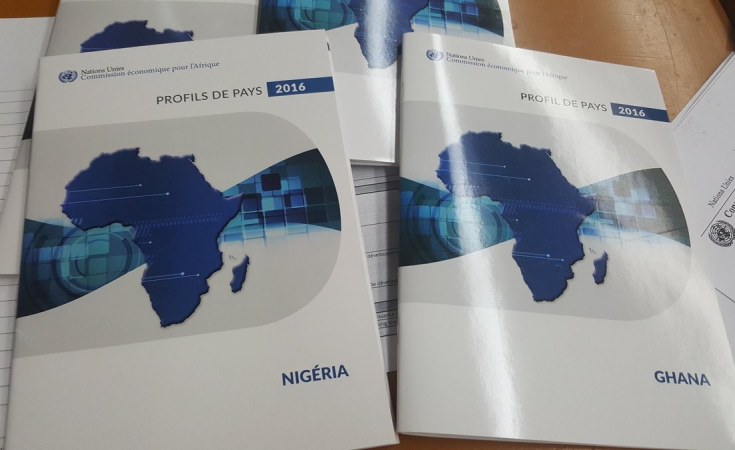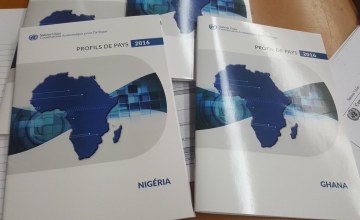Dakar — The central African countries surveyed in the Economic Commission for Africa's (ECA) latest Country Profiles are giving priority to economic diversification to address the various economic and social challenges they are facing, as evidenced in their national development plans.
The 2016 reviews, which were launched during the African Development week in Dakar, Senegal, say that the Central African Republic (CAR), Chad, Equatorial Guinea and Gabon are aware that the negative outlook of the global primary commodity prices on which they heavily depend for their tax revenue and export earnings represents a risk to the overall economy and justifies the need to accelerate structural transformation.
In Equatorial Guinea, the development of agriculture is one of the key pillars of the economic diversification strategy of the Government. The authorities intend to make agriculture a key vehicle to free the country from its dependence on oil and to turn it into an emerging economy by 2020.
According to the Gabon Country Profile, authorities in the country clearly understand the need to sustainably develop the potential of the timber industry, to create alternative sources of revenue and to be less dependent on the extractive industry.
In Chad, the authorities have identified the livestock sector as a gateway for economic transformation, in view of its potential in terms meat, milk and leather production.
The newly elected government in CAR has emphasized the need for the country to reconstruct as a basis for transformation. Despite its post-conflict situation, the CAR government sees infrastructure development as the basis for transformation. Seeking to take advantage of the inadequacy of physical connectivity in the sub-region and the negative impact on the movement of products between countries - particularly for landlocked countries such as CAR and Chad - it wants to develop transport corridors as an entry point in linking reconstruction and structural transformation.
The 2016 Country Profiles also use indexes to review the four central African countries' performances in the fields of regional integration, Health, Education, Poverty reduction, Inequality, Employment and Gender.
The ECA Country Profiles were originally designed in 2015 in accordance with Resolution 917 of the Conference of African Ministers of Finance, Planning and Economic Development (Abuja, 2014), with the aim to provide African decision-makers with an independent analysis of their countries' economic and social development including the progress made to achieve regional integration.
The country profiles are based on data provided by member States and they complement ongoing ECA efforts to improve the collection and use of statistical data in Africa.
They include various innovations such as: the African Social Development Index (ASDI), which measures human exclusion in six key dimensions of wellbeing throughout the life cycle (survival, health, education, employment, means of subsistence and the capacity to live a decent life after the age of 60), the AGDI (African Gender and Development Index) and the African Regional Integration Index, based on the five pillars of regional integration (trade integration, regional infrastructure, productive integration, free movement of people & financial and macroeconomic integration).
The countries covered in the 2016 Country Profiles are Algeria, Angola, Burundi, Cabo Verde, Chad, Central African Republic, Djibouti, Equatorial Guinea, Gabon, The Gambia, Ghana, Madagascar, Malawi, Mauritania, Mauritius, Mozambique, Nigeria, Somalia, South Africa, Swaziland and Tunisia.
For more information about the ECA country profiles, please visit: http://www.uneca.org/publications/country-profiles.



